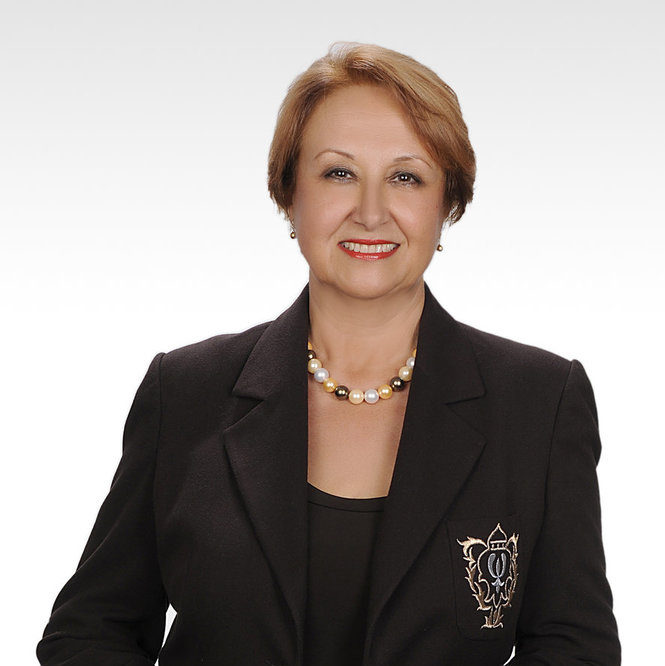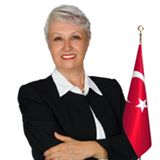International ICT Seagulls Project starts its “17th PROUD YEAR”. Within the previous 16 years, we also developed Leading Seagulls and Community Seagulls. The following section will give the needed information concerning the projects of the year 2020. I wish a very fruitful and successful project season with intensive participation and a great collaboration. We are very happy for being supported by three important organizations (CMS, Lucknow, India, WCTQEE & Human Dignity and Humiliation Studies) along with the non-profit, non-governmental organization: Association for Innovative Collaboration (AIC/YİMEDER).
This project is very different from the accustomed project designs. Why?
*Its origin is Turkey.
*It is a very innovative study. It does not show any similarities with any project on earth.
*It works within teams. World Bank awarded its methodology in 2005 at the “Competition for the Turkey’s Creative Development Ideas”.
*It always changes. It modifies itself within the time based upon the necessities and requirements of the year/age.
*It is a guided project. The designer of the project always follows your steps through the e-mails and guided templates and motivates you when is needed. Your roadmap is drawn with her support.
*Technology is a very important part of the project but other innovative tools might replace it. It is up to your imagination. We use technology for communication, data collection and data analyses and for sharing.
*Its goal is learning, innovating, sharing. There is no need for negative rivalry. Id the project is completed, every team is a winner.
*You might get your “Achievement Certificate” through e-mail, or at your school Ceremony or during the Award Ceremony in India.
We have been flying with our own wings after the great support of Microsoft between the years of 2004 and 2009. Since 2006, the international teams have started to take part in it. For 7 years, university teams have been with us. Last year Community Seagulls were added. If you would like to learn more, please visit our web page: www.bilisimcimartilar.com/English
PROJECT GOALS AND OBJECTIVES:
We aim at training innovative, contemporary and qualified generations who are;
- good at using the Internet, social media and ICT technology efficiently and effectively,
- aware of the importance of collaboration (=İmece) and team spirit,
- skilful in determining and solving their own problems and also the problems of the community,
- knowledgeable about research rules and ethics,
- visionary, brave and hardworking enough to implement the strategies developed for the problem areas,
- sensitive enough to the problems of own community, environment, cultural diversity and self-improvement,
- Well-trained and creative in sharing their project steps on an innovative PowerPoint presentation, web page and/or Blog.
Through this Project;
- Awareness will be created upon the K-12 level student-teacher circles (teams)/university circles, community circles including NGOs and local authorities related to;
- Human dignity, cultural sensitivity and tolerance,
- Cultural sensitivity and tolerance,
- Sustainability in various areas,
- Gaining a historical perspective about the studies issues,
- Team spirit through “World Bank 2005 Turkey’s Creative Development Ideas” AWARDED “İmece Circles” methodology,
- Quality focused issues and tools,
- Technological & Environmental literacy,
- Creativity: Original and authentic design info,
- Time, meeting, conflict, stress and portfolio management,
- Ethics, especially respecting the copyrights of others,
- Communication skills & Problem-solving skills,
- The necessity of feeding “Mind-Body and Spirit” in a positive way.
- Young generations will be motivated to be more creative, productive and investigative whatever they study on.
- All generations_young and old_ will be able to come to the same platform to solve the common problems.
- Participants will develop a positive attitude towards the importance of sharing the results of their projects at a very extraordinary style_ using their imagination to fly towards the beyond of limits just like; “The Seagull Jonathan Livingstone”; not only at national but also at international platforms.
PROJECT TOPICS:
This
year, we proposed FIVE main themes in order to enlarge the project areas
to give more freedom to the student teams. They are as follows:
1. HEALTH & HYGIENE
2. WOMEN ISSUES & VIOLENCE TO WOMEN
3. ENVIRONMENTAL PROBLEMS
4. ETHICS
5. OBSTACLES FOR THE DISABLED
6. THINKING LIKE A LEADER (Like Atatürk, Gandhi, Mandela, etc…)
OUR SLOGAN: The Young and the Experienced: Hand-in-hand for peace, quality and dignity!
METHODOLOGY:
Project circles will study based upon the PDCA Mindset (Plan-Do-Check-Act) using quality tools and following the İmece Circles (SQC) steps. They will use the Information and Communication Technologies (ICT) at a maximum rate. If there is limited Internet access, you can use your cellular phones. It was proved after a 16-year experience that the project adds a lot knowledge and skills students, which contribute to character development of the young. They gain and improve the philosophy of lifelong learning and team spirit. It is worth of noting that, those outcomes are approved not only in the national level but also at the international platforms. We are proud of having students’ imece circles (SQCs) from India, Nepal, United States of America, United Kingdom, South Africa and Sri Lanka in addition to Turkish schools.
The Project is open to all age groups starting from preschool education to universities. The circles study on their problem areas approximately for 6 months based upon Multiple Intelligences approach of Gardner and produce songs, drawings, caricatures, skits, documentary films, photographs, etc. Then, they share all the steps and the products through four media. They are:
- Web page design,
- Blog,
- Web+Blog design,
- PPT presentation.
TARGET GROUP: In the year of 2020, national and/or international circles will work in the following age and school groups:
1. K-12 graders (ICT Seagulls)
2. University students and lecturers (Leading Seagulls)
3. Disabled and/or gifted adults and/or students (Challenged Seagulls)
4. Local authorities, NGOs, companies and families (Community Seagulls).
REGISTRATION RULES:
In order to participate in the Project, sending the Registration Form to Mrs. Hayal Köksal is the only pre-requisite. In order to take part in the project, technology must not form an obstacle for the team. The internet connection and PCs (Or Cellular Phones) should be accessible for the circle members. Each project member is advised to have an e-mail account. It is also recommended to include the parents of the students and the community members around the project school to the project cycle as team members.
As is known, the team, which completes the Project following the rules, is regarded as a “WINNER”. The school administration of winner is presented a plate (momentum) and all the team members get e-Certificates. This project does not have a financial award. The biggest award is considered as internalizing; Team spirit, Critical thinking skills, Continuous Improvement Philosophy (Kaizen), Communication skills, Leadership skills and gaining reputation at national and international platforms. Following the announcement of results, participants get the chance of attending the ICSQCC .
PROJECT STEPS:
At the School Administration level:
- Volunteer Team registers to the Project by sending the Registration Form to the General Coordinator of the Project who is namely; Dr. Hayal Köksal through Phone and/or fax (+90 212 341 26 02) or e-mail ([email protected]) to participate in the Project. The Form will be provided by Prof Köksal upon request.
- After the approval of the registration, a virtual training seminar will be either given by Dr. Köksal or sent as PowerPoints training. All the team members and the leading teachers start their project journey after getting the detailed information about the steps.
- It is a guided project at many steps. Please do not feel alone.
At the Team Level:
Projects must follow the PDCA Mindset (Plan, Do, Check, Act) steps as follows:
- Identification of the project topic (problem area) with the participation of students.
- Conducting a detailed research (Literature review) related to the problem area.
- Drawing of the “Road Map” of the project by using quality tools, such as; brainstorming, fishbone diagram, matrix, etc.
- Determination of the strategies and tactics after the main and root causes of the problem.
- Implementation of the strategies to bring solution to the problem.
- Collecting and analyzing the data related to the problem.
- Measuring the success rate of the change and sharing all the outcomes through various ways (web page, Blog or PPT).
- After drawing the Road map of the project, it must be approved by the general coordinator of the Project who is Dr. Köksal.
- Assessment steps will be shared in time.
ASSESSMENT PROCESS:
2020 ICT Seagulls Projects will be assessed in two phases after getting the approval from the General coordinator who is Dr. Hayal Köksal. Assessment Approval will be given based upon following the rules and timing.
1. PEER ASSESSMENT: All the circles from all participating countries will assess the other projects (excluding theirs).
2. JURY ASSESSMENT: The jury members will assess all the projects based on five criteria. Each year, the assessment criteria show differences depending on the age groups.
This project is supported by the Association for Innovative Collaboration (YİMEDER), World Council for Total Quality and Excellence in Education, “CMS-Lucknow/ India” and QUEST Nepal.
The Deadline for the registration is 10th February 2020. It will end on the 10th June 2020. The sooner you start, the sooner you finalize it.
Good luck.
www.bilisimcimartilar.com [email protected]
[email protected] [email protected]


